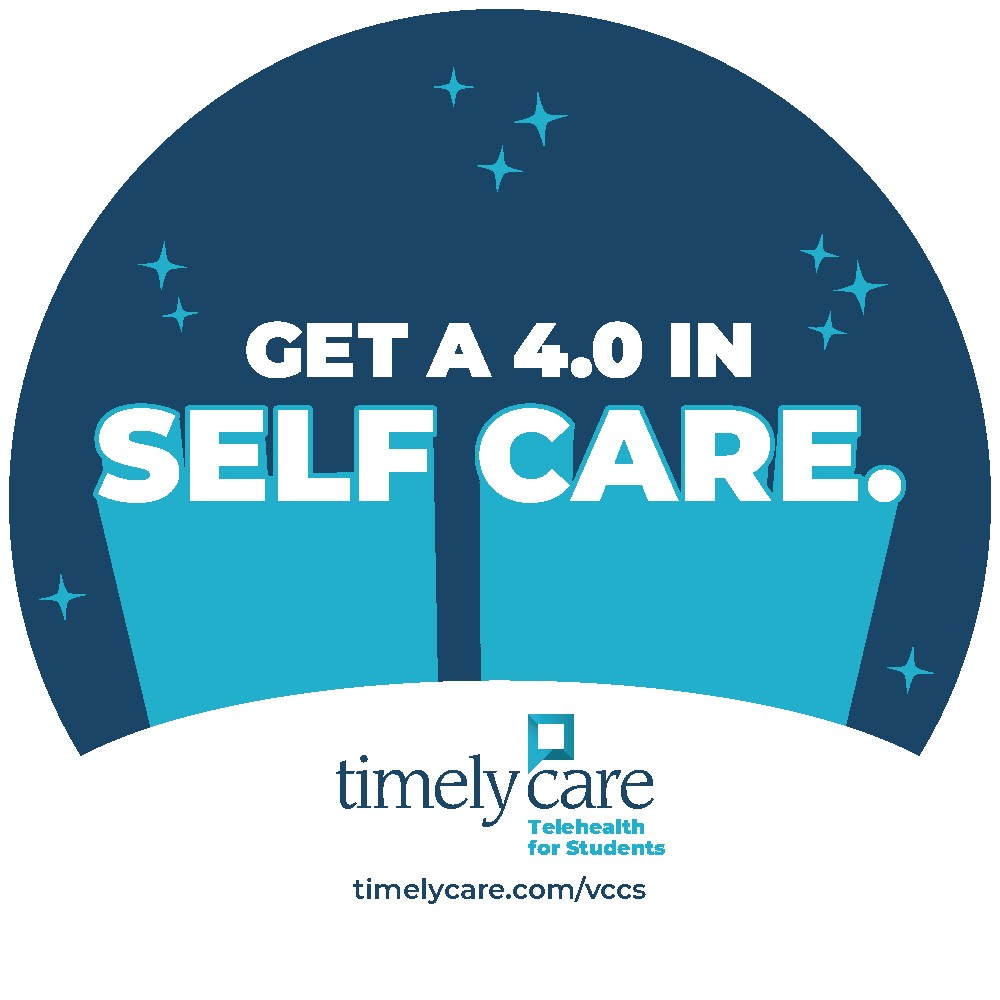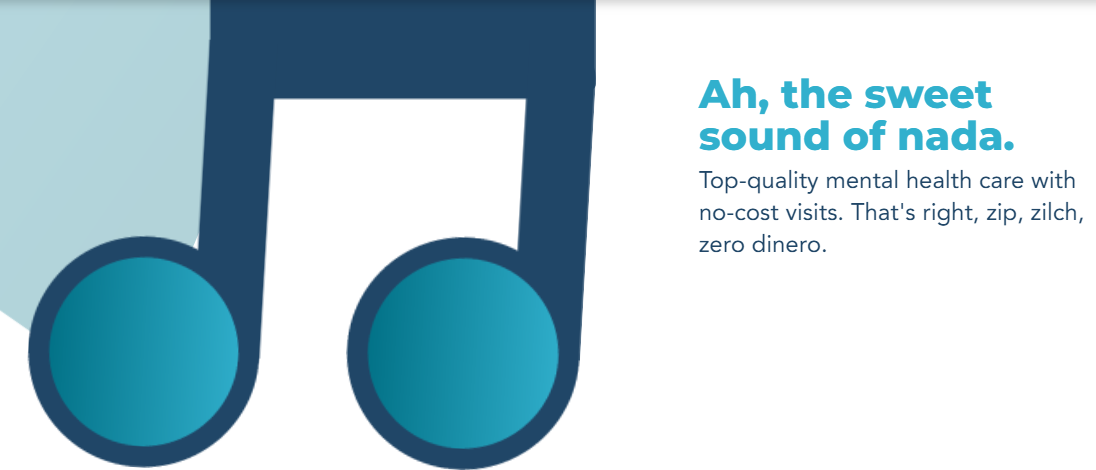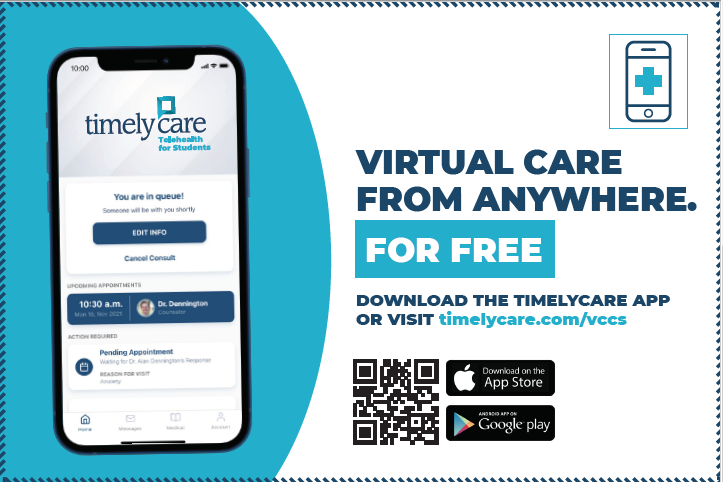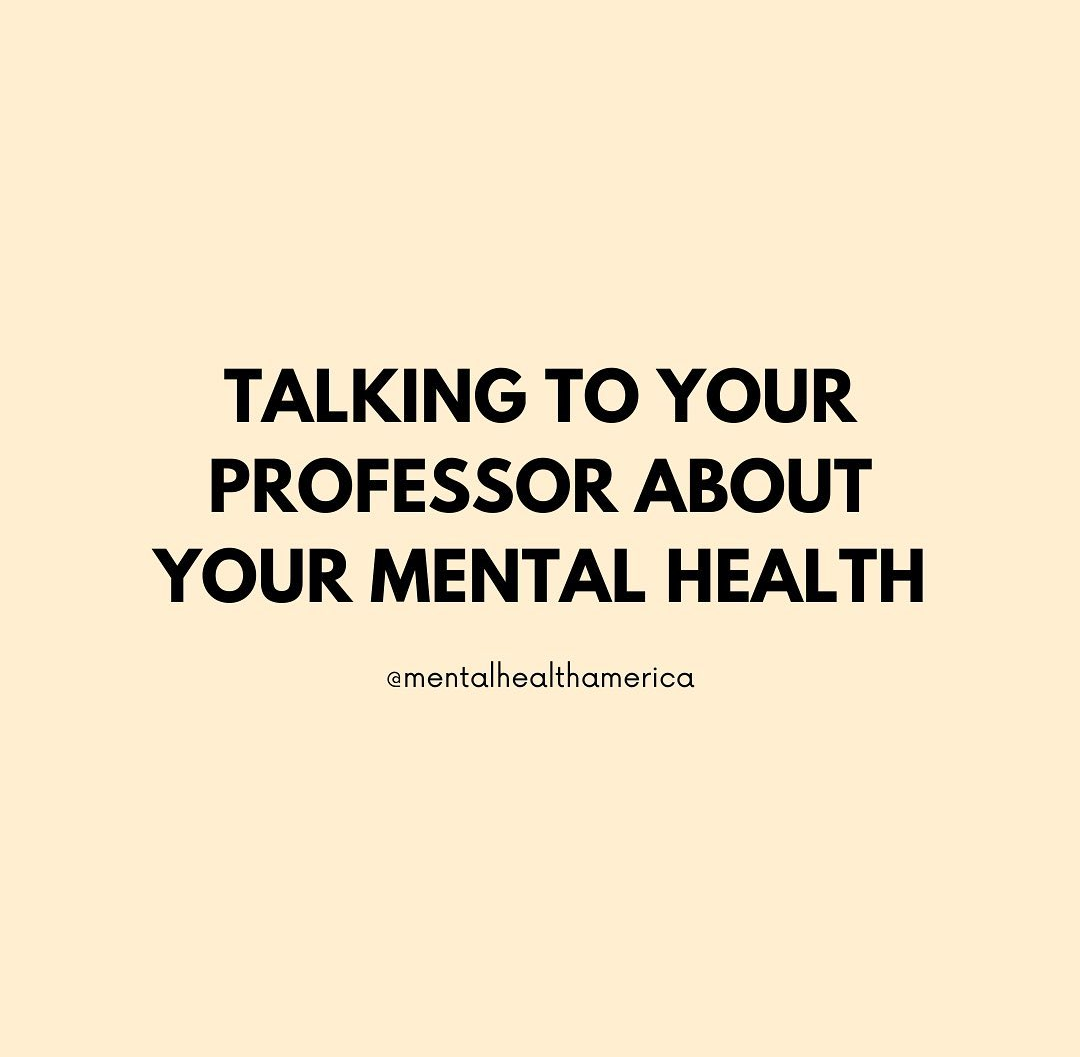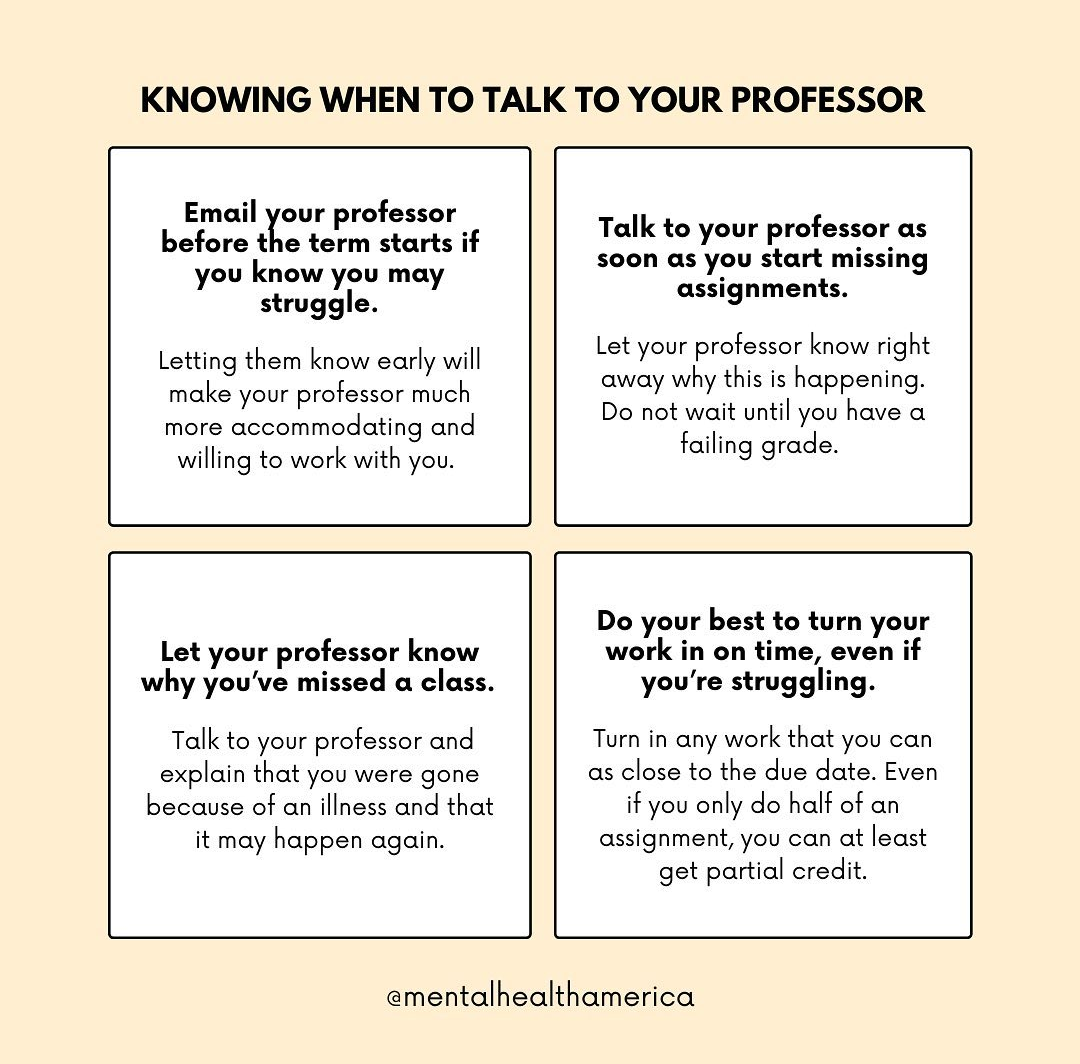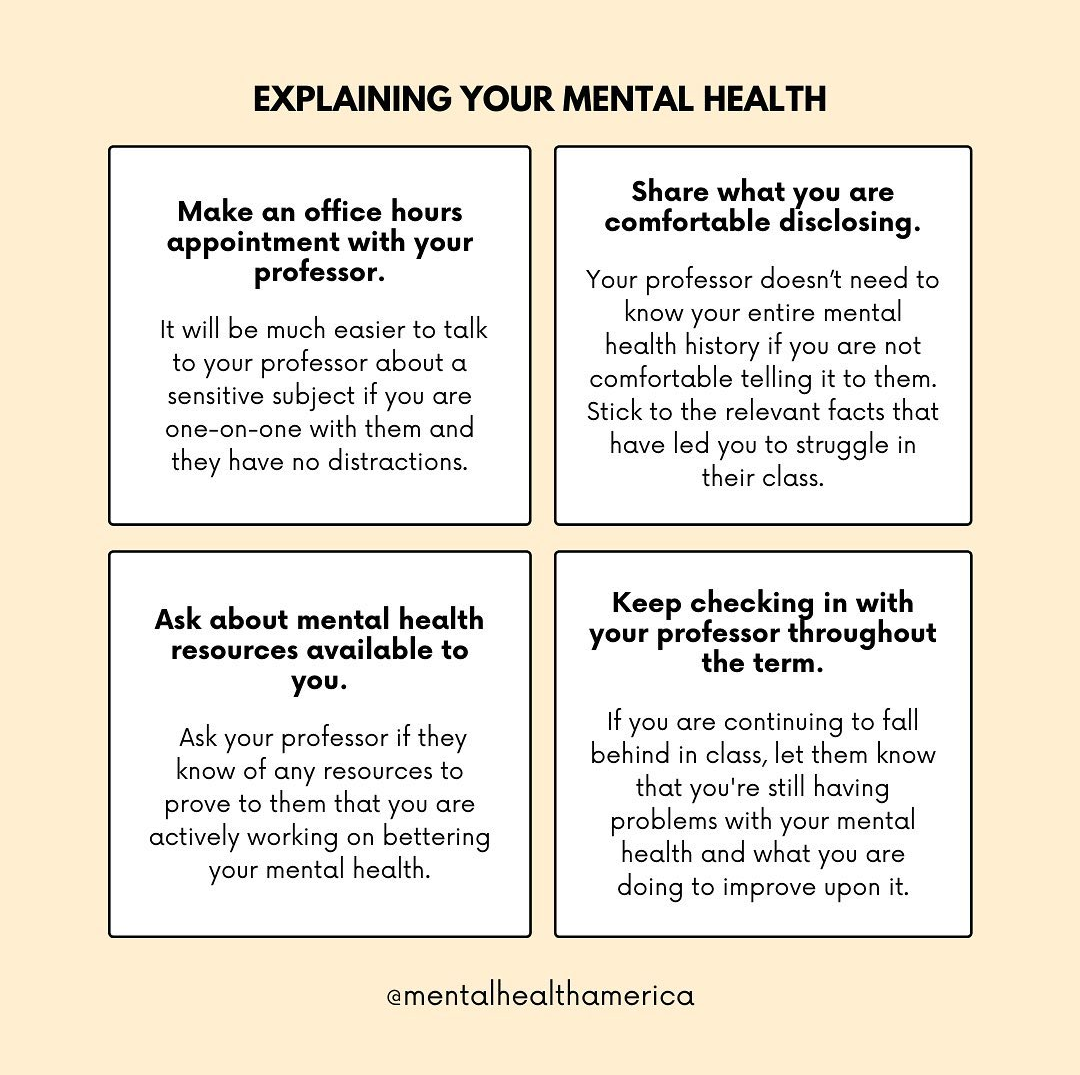Northern Virginia Community College is excited to offer TimelyCare- a new, FREE telehealth program for students for students seeking mental health and wellness supports! The service will provide access to 24/7 virtual mental health care from anywhere in the United States via the TimelyCare app or the web on VCCS’ TimelyCare homepage for phone or video appointments. Available services include:
- TalkNow: 24/7, on-demand video access to a mental health professional for in-the-moment support for concerns like test anxiety, interpersonal conflicts, stress, break ups, feeling stuck, and suicidal ideation
- Scheduled counseling with a licensed professional (up to 6 sessions a year)
- Health coaching with lifestyle support for concerns like sleep issues, body image, physical health, nutrition, meal prep, etc.
- Group sessions for weekly guided meditation, yoga, and monthly special topics seminars
You’ll never receive a bill, be asked to pay, or be asked to provide insurance information! Registration with your VCCS email, an internet connection, and about 2 minutes is all you need to start; learn more and sign up at www.timelycare.com/vccs, download the TimelyCare app, or access from the Office of Wellness and Mental Health telehealth page today!
Dual enrolled students are not eligible to access these services and students under the age of 18 require parental permission to access telehealth services. Please contact the Office of Wellness and Mental Health at wellness@nvcc.edu with any questions.

